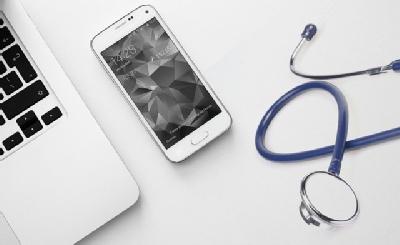Video consultations with GP are viable alternative during social distancing measures
- Study by University of Warwick conducted before the coronavirus outbreak shows patients and clinicians are receptive to consultations via video link
- Technology could help maintain continuity of care for patients when social distancing
- Video consultations were viewed as best suited for routine appointments
- However, experience of using video consultations is not widespread in general practice due to resource and technical challenges
 Patients and general practice staff are receptive to greater use of video consultations in general practice, however concerns about accessibility and technical challenges have been an obstacle to the technology being widely adopted, a University of Warwick study has found.
Patients and general practice staff are receptive to greater use of video consultations in general practice, however concerns about accessibility and technical challenges have been an obstacle to the technology being widely adopted, a University of Warwick study has found.
As efforts to manage the outbreak of the coronavirus disease (COVID-19) in the UK lead to more self-isolation and social distancing, the new research from Warwick Medical School suggests that video consultations with GPs are a viable means for maintaining continuity of care for at-risk groups.
The research, conducted before the outbreak of COVID-19 and published in BJGP Open, explored both patients' and clinicians' experiences of video consultations in primary care. The systematic review examined seven studies on video consultations published since 2010.
Video consultations involve a clinician consulting with a patient via an internet-based video link. In UK general practices this involves the use of web platforms, similar to Skype but using secure technology that protects patient confidentiality. They have the advantage over telephone consultations of allowing doctors to pick up on visual cues. They are increasingly being adopted in primary care but until now have not seen widespread use yet.
This latest study found that, on the whole, evidence on patient and staff views on video consultations is mixed, with some studies showing that patients are satisfied and others that they prefer a face-to-face consultation. But while face-to-face consultations were seen as the ‘gold standard’, particularly for chronic conditions, there was evidence that video consultations still allow patients to build rapport with their GP and would be viewed most favourably for routine appointments.
Corresponding author on the paper Dr Helen Atherton of Warwick Medical School said: “Our review included studies that showed that routine visits were a good use for video consultations, but that patients with long term conditions are more likely to prefer face-to-face consultations. This is interesting because lots of the consultations in general practice are with people who are older and have long-term conditions, the same people who are most at risk in the current situation.
“Regardless, video was associated by patients with benefits such as convenience and avoiding a trip to the surgery, the latter being particularly beneficial at the present time. Now is a good time to try it if you want the reassurance of seeing your GP, and your practice is offering this option.”
Clinicians were shown to have more variable views on video consultations, with their feelings about using it dependent on what it was being used for and who with, and with concerns about those people who may not be able to access it. In order to use video consultation, patients require an internet enabled device such as a smartphone, tablet or computer. There were also concerns that not having to have access to the internet or such devices would disadvantage some patients who are not as ‘digitally literate’.
General practices have not been resourced or prepared to adopt video consultations widely until now as it requires equipment and procedures that had not widespread in UK general practice.
Dr Atherton said: “Remote consulting has already become a necessity in the current climate, and video is one of the options for delivering this. It is likely that telephone consultations will become the default option for most practices because they are already well established ways to consult. But where practices can deliver video consultations, or arrange a video consultation set up, the current crisis has quickly become a stimulus to do this, and the longer it goes on for, the greater the need to be able to see patients as well as talk to them.
“Whether a patient can request video consultations or not is dependent on whether their general practice is offering this service. At the very least, practices will be offering a telephone consultation and patients can ask about the availability of video consultation services. I would advise them to keep themselves informed about what their general practice is offering, as general practices are rapidly setting up different types of remote consulting and this is an ever-changing situation.
“However, for any patient, regardless of age, if they have access to video consultation and want to do a routine consultation this is feasible and sensible.“
- ‘Exploring patients' and clinicians' experiences of video consultations in primary care: a systematic scoping review’ is published in BJGP Open, DOI: 10.3399/bjgpopen20X101020
Ends
25 March 2020
For interviews or a copy of the paper contact:
Peter Thorley
Media Relations Manager (Warwick Medical School and Department of Physics)
Email: peter.thorley@warwick.ac.uk
Tel: +44 (0)24 761 50868
Mob: +44 (0) 7824 540863
